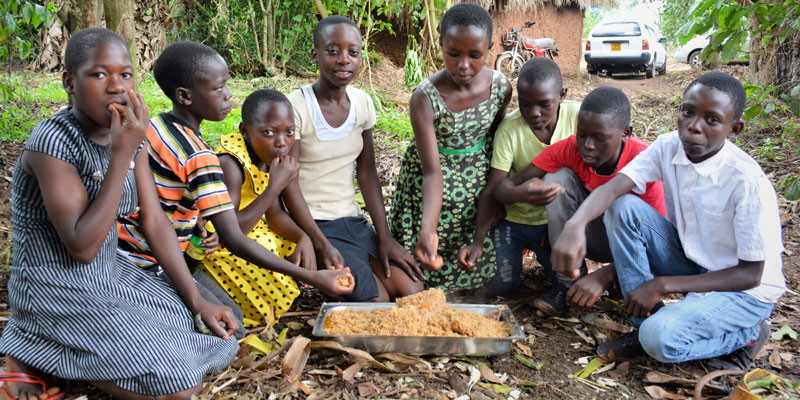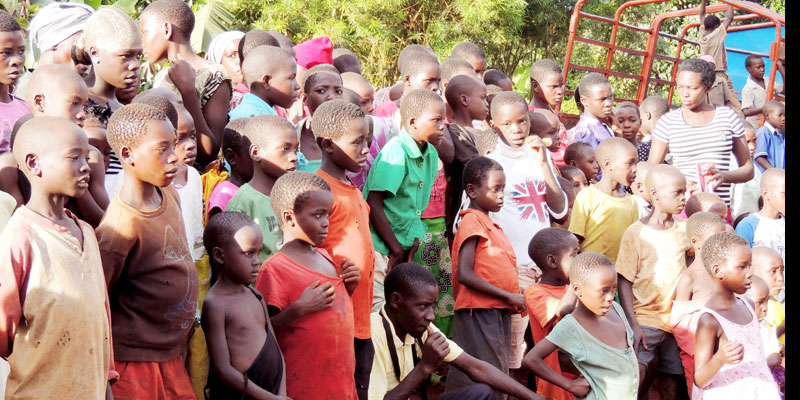Guest Writer
‘Food, Fun and Flair’: it’s time to party in the village
Chinua Achebe, in his celebrated novel, Things Fall Apart, notes that: “A man who calls his kinsmen to a feast does not do so to save them from starving. They all have food in their own homes. When we gather together in the moon-lit village ground, it is not because of the moon. Every man can see it in his own compound. We come together because it is good for kinsmen to do so.”
Two years ago, Doreen, my maternal sibling, asked me to attend her introduction ceremony in Budondo, a village in Busoga Region. It was a fun-packed ceremony that made me experience the other side of partying life.
It was a ceremony to remember. Even without the fancy silky Kampala-like sound system, I felt the party to the spine.
From unusual dance strokes, strange chants, unique vibes and music that was once played on compact tapes, everything was unique. Initially I saw nothing unique in the matter – until I travelled to Mayuge where citizens would at first refuse to turn up on the introduction aspect of ceremony, only to show up at the hour of serving meals.
An old woman told me: “Baaba, the definition of a party is fun, food and music, but the fun starts with eating.”
This was to be the same trend with my recent visit to Kileebi a village in Ziroobwe in Luweero District. Here, too, party life was far from barbeques, live bands or invitation cards. From the children emerging from all corners of the village to the venue, the smell of rice and meat was all over the place.
At Kileebi a village far away from Ziroobwe trading centre , boda boda cyclists asked me if I was going to attend the graduation ceremony and I hoped that the place was near by only to take a ride of around 7 kilometers enduring the potholes and quiet places. The cyclist tells me that in the villages a party can be felt all-over. And bicycles passing by each other to and from a village party can be noticed, without being told by anyone.
The boda boda man tells me that during the time he spent in Kampala, he could would never even know if a death had occured in the neighbourhood. Everybody minded their own business; this led the boda boda man denouncing the social life-style of the people in the city.
In Budondo, ushers treated the elders to a special arrangement in the case of moving the jerry-can to the washing of hands. They were considered first even in the music played as their interest was assumed and taken into account.
Unlike in Kileebi, where the music played was dominated by Anglican hymns, in Budondo, it was the flair of the old vibes, with political anthems, that saw them re-play the Kizza Besigye FDC campaign song. This was eventfully halted following the arrival of an NRM ruling party official.
The old Kiganda saying, ‘Luganda Kulya’ (Eating brings people together) comes to mind in villages where people gather to share the little that is served at a party.
In Kileebi I saw children gather to get a share on the served meals. In Budondo and Mayuge, pupils coming back from schools, could not afford to miss-out on the served meals; some had to hide their books in the bush to eat first.
Regardless of one’s status, it is only in the village where one can get a chance to greet and hug the bride. It is a tale of; love, peace, eating and socialising.
Happiness differs considerably across employment status, job type and industry sectors. People in well-paid roles are happier, but it is money which is the only one predictive measure of happiness. Work-life balance, job variety and the level of autonomy are other significant drivers.
The data in the World Happiness Report 2017 looks at trends in recording how highly people evaluate their lives on a scale running from 0 to 10. The rankings, which are based on surveys in 155 countries, covering the three years 2014-2016, reveal an average score of 5.3 (out of 10).
In his research, the University of Minnesota Professor, David Lykken, concluded that, “Fifty percent of happiness among Ugandans is determined by our genes (the happiness set point) and the other 50 percent is determined by other circumstances of life.”
Comments





























